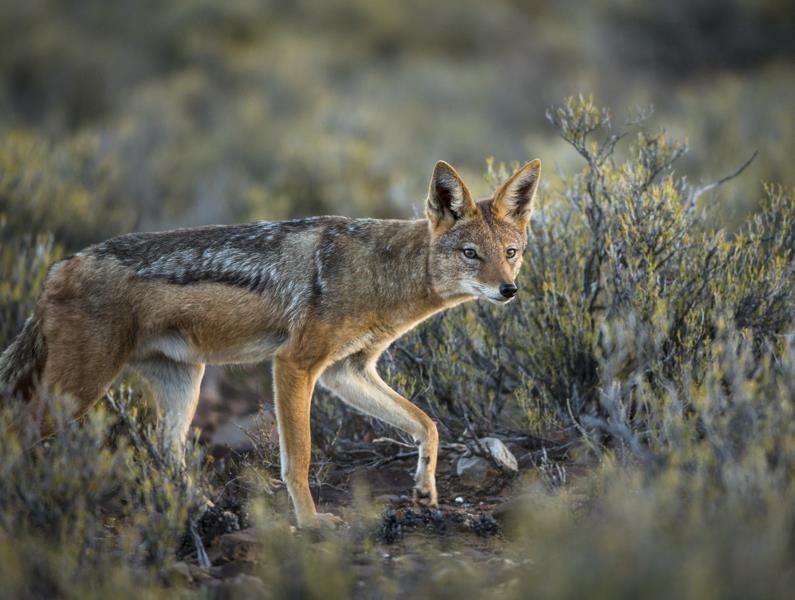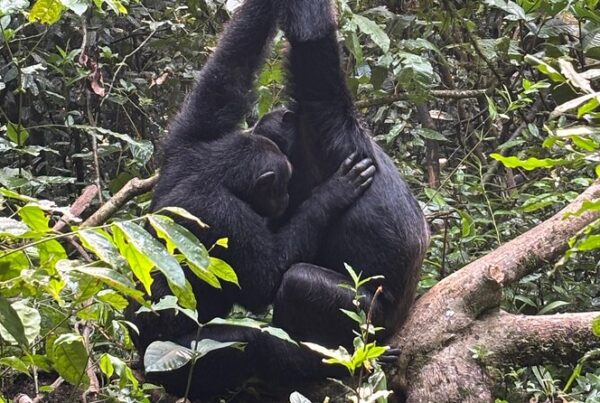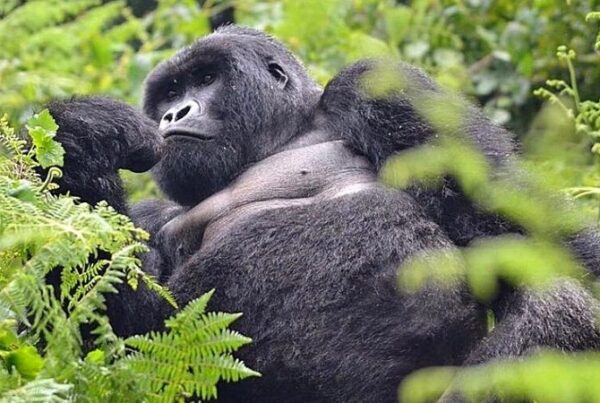5 Fascinating Facts About the Black-backed Jackal
Facts About the Black-backed Jackal
The Cunning Sentinel of the African Wilderness
In the great theater of African wildlife, certain animals command the spotlight with sheer size or majesty. Yet, others captivate in quieter, more cunning ways. The Black-backed Jackal, with its striking two-toned coat, keen intelligence, and complex social behavior, is one such marvel. Often overshadowed by the continent’s larger predators, this medium-sized canid deserves recognition as a fascinating and vital player in Africa’s ecological balance.
With its sharp eyes and sharper wits, the Black-backed Jackal (Canis mesomelas) survives not through brute force, but by outsmarting and adapting to its ever-changing environment. To truly appreciate this remarkable animal, one must look beyond its modest stature and delve into the subtle intricacies of its behavior and biology.
Masters of Adaptation: Thriving Across Habitats
One of the most remarkable aspects of the Black-backed Jackal is its extraordinary adaptability. Native to eastern and southern Africa, these jackals thrive in a broad range of habitats, from arid deserts and dry savannahs to coastal scrublands and even mountainous regions. This versatility in habitat preference is a testament to the species’ evolutionary resilience.
Unlike some specialized predators that require specific conditions to survive, the Black-backed Jackal exhibits a generalist’s mastery of survival. It is capable of adjusting its diet and behavior to suit the demands of its surroundings, whether that means scavenging alongside hyenas, hunting rodents at night, or feeding on fruits during lean seasons.
This flexibility also allows the jackal to coexist with a variety of other species, often filling the niche of both predator and scavenger. In areas with intense competition from larger carnivores, the Black-backed Jackal modifies its activity patterns, foraging in off-peak hours or adopting stealthy, nocturnal habits. Their ability to shift strategies with such ease demonstrates a level of behavioral sophistication that has ensured their continued success in a landscape shaped by unpredictability.
Socially Complex and Monogamously Loyal (Facts About the Black-backed Jackal)
Despite their reputation for cunning and opportunism, Black-backed Jackals lead surprisingly structured social lives. They form long-term monogamous pairs that work cooperatively to raise offspring, defend territory, and hunt. This family structure enhances their ability to thrive in difficult environments by distributing the responsibilities of survival. A bonded pair will often maintain and defend a permanent territory year-round, marking boundaries with scent and vocalizations to ward off intruders.
What makes their social structure even more fascinating is the involvement of older offspring, who sometimes delay dispersal to help raise the next litter. These “helper” jackals contribute to feeding, guarding, and teaching their younger siblings survival skills. This cooperative breeding strategy, rare among carnivores, reflects an evolutionary advantage that ensures higher survival rates for pups. It also creates strong familial bonds and a clear social hierarchy within the group, demonstrating that even among wild canids, loyalty and cooperation can be as critical as aggression and competition.
Vocal Intelligence: A Language of Survival
Communication is at the heart of the Black-backed Jackal’s survival strategy. These jackals possess a highly developed system of vocalizations used to coordinate hunting, defend territory, and maintain social bonds. Their repertoire includes yelps, howls, growls, and a distinctive high-pitched scream that can pierce through the quiet of the African night. Unlike random noise-making, these calls are intentional and often context-specific, suggesting a form of rudimentary language.
Pair-bonded jackals frequently engage in duets, calling in unison to reinforce their bond and assert their territorial claim. These vocalizations serve a dual purpose: they strengthen social cohesion within the pair or family unit, and they act as an auditory fence that warns rivals to keep their distance. The ability to use sound so effectively, both for interpersonal bonding and strategic defense, highlights the Black-backed Jackal’s cognitive acumen. It allows them to navigate the complex dynamics of territory and competition without constant physical conflict, which conserves energy and reduces the risk of injury.
Opportunistic Diet: Carnivore with a Taste for Variety
The Black-backed Jackal’s diet is as diverse as the landscapes it inhabits. A true omnivore with carnivorous tendencies, this canid consumes a wide range of food items depending on availability. From insects, rodents, and small antelopes to carrion, fruits, and even human refuse, its menu is dictated by opportunity rather than preference. In areas near human settlements, jackals have been known to raid poultry farms or scavenge from trash heaps, showcasing both audacity and ingenuity.
This dietary flexibility plays a critical ecological role. By consuming carrion, jackals help prevent the spread of disease and contribute to nutrient cycling within ecosystems. When they hunt small mammals or insects, they help regulate populations that might otherwise reach pest levels. Their impact as both predator and scavenger makes them indispensable to the health of their environment. Furthermore, their ability to toggle between hunting and scavenging, depending on the presence of other predators, reveals a dynamic adaptability few species can match. The Black-backed Jackal does not merely survive in its ecosystem—it actively shapes and supports it.
Survival in the Shadow of Giants
Living alongside larger and often more aggressive predators like lions, leopards, and hyenas means the Black-backed Jackal must constantly tread a fine line between risk and reward. Rather than challenge these apex predators directly, jackals employ a clever blend of stealth, timing, and opportunism. They often follow larger carnivores from a distance, swooping in to scavenge the remnants of kills once the dominant players have moved on. In this regard, they serve as both cleanup crew and silent witnesses to Africa’s often brutal food chain.
This ability to navigate dangerous environments without engaging in direct conflict is a hallmark of the jackal’s intelligence. Their acute senses, particularly smell and hearing, help them detect threats early and respond accordingly. When danger approaches, they rely on speed and agility to escape, often retreating to burrows or dense brush. These evasive strategies, combined with their mental agility, allow them to carve out a sustainable niche in some of Africa’s most competitive ecosystems.
Witness the Wily World of the Black-backed Jackal with WildHorn Africa
To understand the true brilliance of the Black-backed Jackal, one must experience it in the wild, where every movement is a masterclass in survival, every call a note in nature’s orchestra. Observing these elusive canids in their native habitat reveals the intricate ballet of strategy, cooperation, and adaptation that defines their lives.
WildHorn Africa offers expertly curated safaris designed to showcase not just the Big Five, but the full spectrum of Africa’s wildlife, including the underestimated but utterly captivating Black-backed Jackal. With seasoned guides and immersive experiences, you can witness firsthand the cunning and charm of this remarkable animal.
Book your African adventure with WildHorn Africa and step into a world where intelligence, resilience, and family bonds rule the wild. Let the journey begin where curiosity meets conservation, and let the Black-backed Jackal guide you into the heart of Africa’s untamed magic.
Facts About the Black-backed Jackal #Facts About the Black-backed Jackal Facts About the Black-backed Jackal









